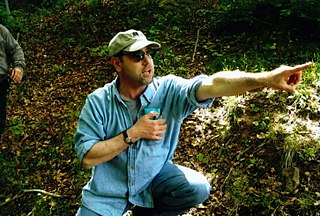A Quote by William Hazlitt
Related Quotes
The delight we take in our senses is an implicit desire to know the ultimate reason for things, the highest cause. The desire for wisdom that philosophy etymologically is is a desire for the highest or divine causes. Philosophy culminates in theology. All other knowledge contains the seeds of contemplation of the divine.
It is one thing to say that science is only equipped to test for natural causes and cannot speak to any others. It is quite another to insist that science proves that no other causes could possibly exist. . . . There would be no experimental model for testing the statement: 'No supernatural cause for any natural phenomenon is possible.' It is therefore a philosophical presupposition and not a scientific finding.
If desire causes suffering, it may be because we do not desire wisely, or that we are inexpert at obtaining what we desire. Instead of hiding our heads in a prayer cloth and building walls against temptation, why not get better at fulfilling desire? Salvation is for the feeble, that's what I think. I don't want salvation, I want life, all of life, the miserable as well as the superb.
The causes for my eating disorder ran along the usual lines: depression, an inability to express my rage, a desire to exert control, a desire to feel less, a desire to have my body express the things my voice could not. That, and I had gotten in the habit of believing it was better to take up less space.
The life and soul of science is its practical application, and just as the great advances in mathematics have been made through the desire of discovering the solution of problems which were of a highly practical kind in mathematical science, so in physical science many of the greatest advances that have been made from the beginning of the world to the present time have been made in the earnest desire to turn the knowledge of the properties of matter to some purpose useful to mankind.



































